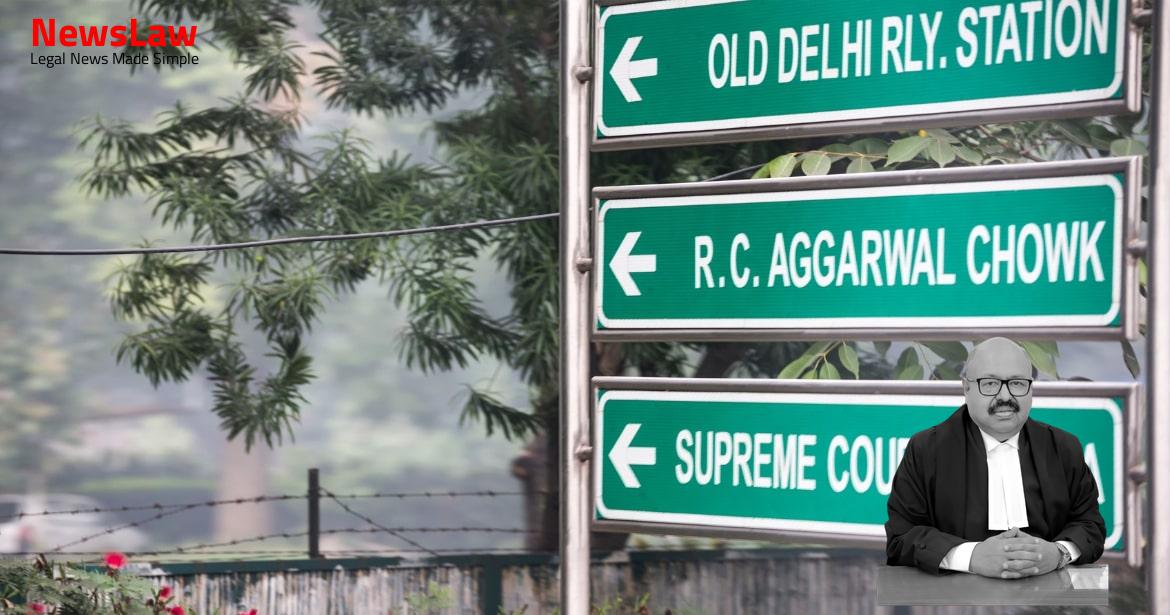The case of Jaiprakash Associates Pvt Ltd v. Delhi Development Authority involves a dispute regarding the amalgamation of companies and property rights. The High Court’s decision on this matter addresses the transfer of properties and the validity of lease agreements in such scenarios. Understanding the intricacies of this case is essential for those dealing with company mergers and lease agreements.
Facts
- M/s. Jaiprakash Associates Pvt Ltd and M/s. Jaypee Rewa Cement Ltd filed a joint application for amalgamation before the High Court of Judicature at Allahabad in July 1986.
- The High Court sanctioned the scheme of amalgamation on 30 July 1986.
- After amalgamation, M/s. Jaypee Rewa Cement Ltd changed its name to M/s. Jaiprakash Industries Ltd in September 1986, and later to M/s. Jaiprakash Associates Ltd.
- An unearned increase value of Rs.2,13,59,511.20 was demanded by the Delhi Development Authority (DDA) from the appellant, which the appellant contested through representations that were not favorably considered by the DDA.
- The appellant, a transferee company resulting from the amalgamation of M/s. Jaiprakash Associates Pvt Ltd and M/s. Jaypee Rewa Cement Ltd, made an application to the DDA for permission to mortgage the plots in favor of the Industrial Finance Corporation of India.
- The Hon’ble President of India executed perpetual lease deeds on 12 August 1983 in favor of M/s. Jaiprakash Associates Pvt Ltd for the specified plots.
- The appellant’s petition was dismissed by a Single Judge based on a Division Bench decision in Indian Shaving Products Limited v. Delhi Development Authority & Anr.
- The appellant appealed the Single Judge’s decision to a Division Bench of the High Court of Delhi.
- The appeal was also dismissed by the Division Bench.
- The High Court’s order dated 30 July 1986 approved amalgamation and directed the properties in Parts I, II, and III of Schedule II to be vested in the transferee company, M/s. Jaypee Rewa Cement Ltd.
Also Read: Balamurugan Murder Case: Police Interference and Acquittal
Arguments
- The merger or amalgamation was carried out to rehabilitate a sick company.
- The lessee’s amalgamation with another company under Company Court’s orders does not constitute sale, transfer, or assignment of specific plots.
- Clause II(4)(a) of the lease deed prohibits the lessee from selling or transferring the plots without lessor’s written consent.
- The scheme of amalgamation did not involve any sale consideration.
- The decision in the Indian Shaving Products Limited case was based on different facts and legal aspects.
- Cited a decision from the High Court of Delhi in the case of Delhi Development Authority v. Nalwa Sons Investment Ltd. & Anr.
- Also referenced a decision from the Division Bench of the High Court of Delhi in the case of Vijaya C. Gursahaney v. Delhi Development Authority & Ors.
- The concept of Section 32 of SICA overriding lease terms was discussed in a previous case.
- Assets and liabilities merged under Section 394 of the Companies Act, 1956.
- The merger did not constitute a transfer under the Transfer of Property Act, 1882.
- Upon amalgamation, the transferee entity absorbed the transferor’s identity.
- An order sanctioning the amalgamation scheme is considered binding on all parties.
- The lessor could impose conditions on consent for transfer, such as payment of unearned increase in value.
- The learned senior counsel representing the respondent-DDA referred to the order passed by the High Court of Judicature at Allahabad on 30 July 1986, stating that the demand for unearned increase was deemed lawful.
- Clause (1) of the order specified that the transferor company’s properties, rights, and powers related to the property described in the first, second, and third parts of Schedule II would be transferred to the transferee company without any additional action or documentation.
- The counsel argued that based on this clause, the transfer of properties from the transferor to the transferee company was legally justified.
Also Read: Ekene Godwin’s Bail Application Rejected: Legal Aid Advocacy Ordered
Analysis
- The High Court misinterpreted Clause 6(a) of the lease deed and opined it is not applicable to demergers of public limited companies.
- The perpetual leases restrict the lessee from selling, transferring, assigning, or parting with the possession of commercial plots without the lessor’s written consent.
- The unearned increase is to be charged based on the market rate prevalent on the date of intimation for any change in the constitution.
- The Court found that the demerger scheme resulted in the transfer of the subject plot from the original lessee to the new company.
- The instructions specified different scenarios for charging unearned increase, including in cases of company transformation and amalgamations.
- The Court emphasized that even if there was no consideration involved in the transfer, the unearned increase could still be charged based on the market value.
- The clause in the perpetual lease deed prohibits any transfer or parting with possession without the lessor’s consent and allows for the recovery of 50% unearned increase.
- The judgment highlighted the importance of following the terms of the lease deed and the policy instructions regarding charging unearned increase.
- The Lessor is entitled to claim and recover 50% of the unearned increase in the value of the plot at the time of sale, transfer, assignment, or parting with possession.
- The Lessor’s decision on the market value is final and binding.
- The Lessor has the pre-emptive right to purchase the property after deducting 50% of the unearned increase.
- Consent for sale, transfer, or assignment of the commercial plot is required from the Lessor, who can refuse at his absolute discretion.
- Exceptional circumstances need to exist for the Lessor to grant consent within ten years of the lease.
- If consent is given, the Lessor can impose terms and conditions as deemed fit.
- Transfer of plot from one company to another due to addition of outsiders not falling within the family members
- Case of Nalwa Sons Investment Ltd. regarding Company Court order of arrangement and demerger
- Case of Indian Shaving Products Limited regarding amalgamation of companies under SICA
- Section 5 of the TPA does not assist the appellant.
- There is nothing illegal about the impugned judgment.
Also Read: Annamalai v. State: Abetment of Suicide Case
Decision
- An interim stay was granted to the impugned judgment on 3 January 2008.
- The appellant was required to deposit a sum of Rs.2,13,59,511.20 with the Court as a condition for the stay.
- The appeal has been dismissed with no order as to costs.
- The DDA is permitted to withdraw the principal amount of Rs.2,13,59,511.20 along with the interest.
- The amount and the interest accrued have been separately invested according to the office report.
Case Title: M/S JAIPRAKASH INDUSTRIES LTD. (PRESENTLY KNOWN AS JAIPRAKASH ASSOCIATES LTD.) Vs. DELHI DEVELOPMENT AUTHORITY THROUGH ITS VICE CHAIRMAN (2024 INSC 273)
Case Number: C.A. No.-008336-008336 / 2009



